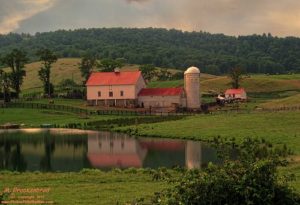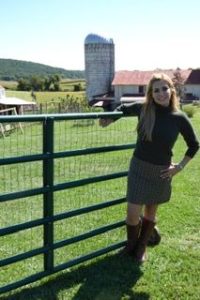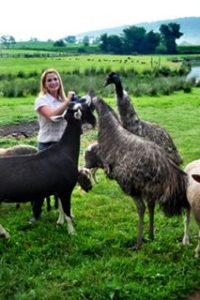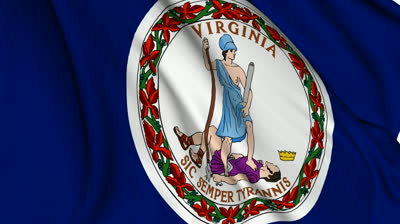If farmers and other rural landowners in picturesque Fauquier County, Virginia want to preserve their way of life, they’re going to have to roll up their sleeves and duke it out with local government officials who are mulling a scheme that, if adopted, would make a mockery of their property rights.
The Fauquier County Board of Supervisors (BoS) is set to vote on a radical overhaul of its existing Rural Lands  Comprehensive Plan. Under Virginia law, local governments are required to have Comprehensive Plans which contain maps, charts, and other descriptive matter, along with long-range recommendations covering residential and commercial development. In predominantly rural Fauquier, the Comprehensive Plan’s Rural Lands Chapter takes on particular significance.
Comprehensive Plan. Under Virginia law, local governments are required to have Comprehensive Plans which contain maps, charts, and other descriptive matter, along with long-range recommendations covering residential and commercial development. In predominantly rural Fauquier, the Comprehensive Plan’s Rural Lands Chapter takes on particular significance.
Eviscerating the Traditional Relationship Between the County and Property Owners
Backed by such groups as the Piedmont Environmental Council (PEC), the Regional Rappahannock Rapidan Commission, Concerned Citizens for Fauquier, Fauquier Taxpayers Association, and the Mosby Heritage Area Association, the Fauquier BoS has drafted a complete rewrite of the Rural Lands Chapter, one that eviscerates the traditional relationship between the county and property owners, and threatens the livelihood of family farms.
The BoS’s scheme, known as the Rural Lands Draft Plan (RLDP), would subject property owners to an unprecedented level of oversight, bordering on out and out control. Under the plan, landowners would continue to own their property and pay taxes on it, but decisions on how the land is to be used would be largely shifted to officials in Warrenton, the county seat. Indeed, the RLDP contains several provisions which are an open invitation to the county to meddle in land-use decision traditionally made by property owners.
Under the guise of “protecting prime agricultural soils,” the county is granting itself the authority to decide whether a farmer can construct a home, barn, or any other structure on his or her property. This goes well beyond obtaining the usual permits. The vague and at time incomprehensible language of the RLDP will give the county undue influence over traditional agricultural practices and operations.
And it’s not just about land; it’s also about water. The county has entered into a five-year collaborative agreement with the U. S. Geological Survey (USGS) as part of a comprehensive plan to use hydrogeological testing technologies to identify water sources in Fauquier, including on private land. Once water sources, with the assistance of the feds, have been identified, it will not take long for the county to find a pretext for controlling the water in the name of protecting it.
The rural character of Fauquier County will be further undermined by provisions allowing for homes to be  constructed on every three acres around a 50-acre plot of land. This “clustering” of homes with resulting increases in population density is part of a county-directed strategy to facilitate the transition from a rural to a suburban culture. The arrangement would be good for investors and developers but would lead down a path most Fauquier residents don’t want to follow.
constructed on every three acres around a 50-acre plot of land. This “clustering” of homes with resulting increases in population density is part of a county-directed strategy to facilitate the transition from a rural to a suburban culture. The arrangement would be good for investors and developers but would lead down a path most Fauquier residents don’t want to follow.
Tradition agricultural practices, such as selling products in farm stores, are also in the county’s crosshairs. The plan would limit agricultural commerce by restricting items sold on site to those products originating on the farm.
Tightening the Screws
Aggressive Dark Sky Lighting Standards would be imposed on “all property owners, including agricultural users. A mechanism would be created under which one complaint could trigger enforcement action. Fauquier County, through its Zoning Ordinance Article 9, already regulates night lighting. The proposed lighting standards are particularly disturbing to neighbors of Sky Meadows State Park, who fear they could come under the thumb of both the state and county government when it comes to night lighting.
In addition to ratcheting up controls over lighting, Fauquier is also emphasizing the protection of “viewsheds,” including extensive mapping of such areas. It has already identified 20 viewsheds and is looking to add more to its list. The county has found another way to throw its weight around. Indeed, the RLDP is full of loose language on the importance of protecting viewsheds, even though there are already measures in place to safeguard the county’s natural beauty.
The RLDP continues to support Fauquier’s regressive Purchase of Development Rights (PDR) program that spends county (taxpayer) money to pay often well-heeled property owners not to develop their land. These property owners then pay less in taxes, shifting to tax burden to those not in a position to take their land out of production.
Incredibly, Fauquier County seeks to codify its already unseemly relationship with silk-stocking conservation groups. Small wonder that the PEC and like-minded organizations support the proposal. The potential for mutual back-scratching at the expense of family farmers and others is alm ost limitless.
ost limitless.
Located in northern Virginia, on the western fringes of the Washington, D.C. metropolitan area, Fauquier is one of the fastest-growing and highest-income counties in the United States. Two of its neighboring counties, Loudoun and Prince William, have undergone a massive suburbanization in recent years and have lost much of their rural character, a fate many residents of Fauquier want to avoid. At the same time, the influx of well-to-do outsiders, who earned or inherited their money elsewhere, is also seen as a threat to the county’s traditional farming communities. That’s why the BoS’s cozy ties with land trusts and other elite groups are viewed with suspicion.
Martha Boneta, owner of a 64-acre farm in Fauquier County, has successfully battled the BoS, PEC, and powerful real estate interests in the past. “I know what its like to face long odds and win. Family farmers and all others who care about the future of their children need to stand up to this power grab,” she says. Boneta is a policy advisor and chair man of Vote America First.
man of Vote America First.
Attend the BoS Meeting
Political fights are won by those who show up. Outraged Fauquier citizens have an opportunity to tell the Board of Supervisors to vote “NO” on the proposed changes. But they will need to attend the next BoS meeting at 6:30 pm on Thursday, July 11, at the Warren Green Building, 10 Hotel Street, Warrenton, VA.
Be there.
